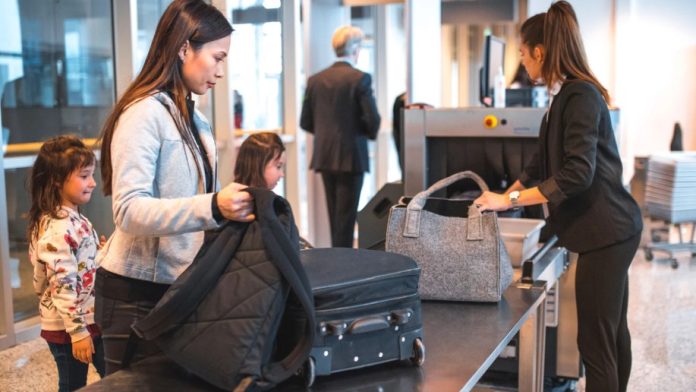In an increasingly globalised world, international travel has become routine, not only for leisure but also for business. Yet, with this mobility comes a challenge that many underestimate the risks of carrying valuables across borders.
Whether it’s luxury watches, cash, gold jewellery, or high-end electronics, travelling with expensive items can trigger unexpected complications at customs. So, what exactly are the risks, and how can travellers from the UAE navigate them safely and responsibly?
Why Is Carrying Valuables a Sensitive Issue at Customs?

Every country has specific laws governing the import and export of valuable goods. While many travellers assume personal belongings are exempt from scrutiny, customs officials view valuables differently, as potential assets that might be traded, taxed, or declared.
In the UAE, for instance, airport authorities maintain clear guidelines about what must be declared. Similar systems operate in other regions, designed to prevent smuggling, tax evasion, and money laundering.
The sensitivity lies in the fact that high-value items can easily cross into grey legal areas. A simple misunderstanding, like failing to declare an expensive watch, could lead to confiscation, fines, or even legal proceedings.
What Counts as a ‘Valuable’ When Crossing Borders?
What constitutes a “valuable” depends on the destination country’s definition. Generally, the term includes items with significant financial or cultural worth.
This often covers cash exceeding set limits, jewellery above certain weight thresholds, precious metals, fine art, luxury goods, and even collectible electronics.
Many travellers forget that even personal-use items like high-end laptops or designer bags may need declaration when entering or exiting specific countries.
The risk increases when travelling through regions with strict foreign currency or asset reporting regulations. It’s always advisable to check these before departure to avoid unintended violations.
How Can Failing to Declare Valuables Lead to Trouble?

One of the most common mistakes travellers make is assuming that items bought for personal use don’t require disclosure. Customs authorities, however, often operate under strict frameworks where anything exceeding declared limits must be reported.
Failing to do so could result in heavy penalties. In serious cases, authorities might seize the undeclared items or question your intent, particularly if they suspect commercial use or money laundering.
Even if your purpose is legitimate, proving ownership or the source of funds can take time, delaying travel plans or causing reputational harm.
For UAE residents who frequently travel for business or trade, such issues can have wider implications, affecting visa records or professional credibility.
Why Is Insurance Crucial When Travelling with High-Value Items?
Even when everything is declared correctly, valuables are still vulnerable to loss, theft, or damage during travel. Airlines and baggage handlers may not offer full compensation for such items. That’s why comprehensive travel insurance plays a critical role.
Specialised coverage can protect your assets from unforeseen incidents, ensuring you’re reimbursed for their value in case of loss. In the UAE, many premium credit cards and travel insurance policies now include high-value item protection, but it’s important to verify the coverage limits and claim conditions beforehand.
It’s also advisable to carry documentation such as receipts, appraisals, or ownership certificates, they help validate ownership during both insurance claims and customs checks.
Can Digital Valuables Pose Similar Risks?
As digital assets grow in popularity, the definition of “valuables” is evolving. Items like cryptocurrency hardware wallets, rare NFTs stored on devices, and encrypted digital assets can create new legal grey zones.
Some countries still lack clear frameworks for declaring digital value carriers, making cross-border movement unpredictable.
For UAE-based entrepreneurs dealing in such assets, this uncertainty poses a challenge. Miscommunication about the value or purpose of a digital asset could trigger unnecessary investigations or confiscation of electronic devices.
In such cases, being transparent and carrying necessary documentation, including purchase records or proof of legitimate business use, can help avoid legal complications.
How Do Cultural and Legal Differences Add to the Risk?

Not all countries interpret “value” the same way. In the UAE, gold and jewellery are common cultural investments, often carried for personal or familial reasons. However, when entering countries with different cultural or regulatory contexts, these same items may raise suspicion.
For instance, some nations impose strict limits on gold imports or require detailed documentation to prove non-commercial intent. Similarly, antiques or religious artefacts can be misinterpreted as cultural exports without permission. Understanding the host country’s regulations is therefore essential.
Are There Safe Alternatives to Carrying Valuables Physically?
One effective way to reduce risk is to avoid transporting valuables physically whenever possible. Many financial institutions and logistics companies offer secure alternatives.
For example, high-value jewellery can be shipped via insured couriers with international tracking, while business documents can be stored in encrypted digital vaults.
Similarly, instead of carrying large amounts of cash, travellers can use international banking transfers or prepaid forex cards, which offer both safety and convenience.
These methods not only lower physical risk but also ensure compliance with financial reporting standards, a critical aspect for global travellers from the UAE.
What Steps Can You Take to Travel Safely with Valuables?
Preparation is the most effective form of protection. Before departure, create a detailed inventory of the valuables you intend to carry, along with receipts and certifications. Declare everything that falls within a country’s required thresholds, and keep copies of all customs forms.
It’s also wise to pack valuables in hand luggage rather than checked baggage, ensuring constant visibility. Use discreet packaging to avoid drawing attention, and avoid discussing expensive items in public areas.
Finally, keep emergency contact details for local embassies or consulates. In case of confiscation or misunderstanding, their intervention can help clarify your situation quickly.
Conclusion
Crossing borders with valuables isn’t inherently dangerous, it’s the lack of awareness that turns routine travel into a potential risk. From customs documentation to insurance coverage and digital security, understanding how each element connects is key to safe and compliant travel.
For UAE residents and business travellers, taking these precautions isn’t just about avoiding penalties, it’s about safeguarding reputation, assets, and peace of mind.
In today’s interconnected world, smart travel means knowing both your rights and responsibilities. Insights from platforms like UAE Business Blog continue to remind travellers that awareness is the best form of protection when navigating global borders.
Author Profile

- Blogger and digital marketer.
Latest entries
 BusinessDecember 1, 2025Why Are Sustainable Restaurants Leading the UK Dining Scene?
BusinessDecember 1, 2025Why Are Sustainable Restaurants Leading the UK Dining Scene? LifestyleOctober 22, 2025How Does a Single Speeding Ticket Affect Your Insurance Premiums?
LifestyleOctober 22, 2025How Does a Single Speeding Ticket Affect Your Insurance Premiums? LifestyleOctober 22, 2025What Are the Risks of Carrying Valuables Across Borders?
LifestyleOctober 22, 2025What Are the Risks of Carrying Valuables Across Borders? BusinessMay 31, 2024Transforming Waste Management: Quick Wasters’ Commitment to the Environment
BusinessMay 31, 2024Transforming Waste Management: Quick Wasters’ Commitment to the Environment
